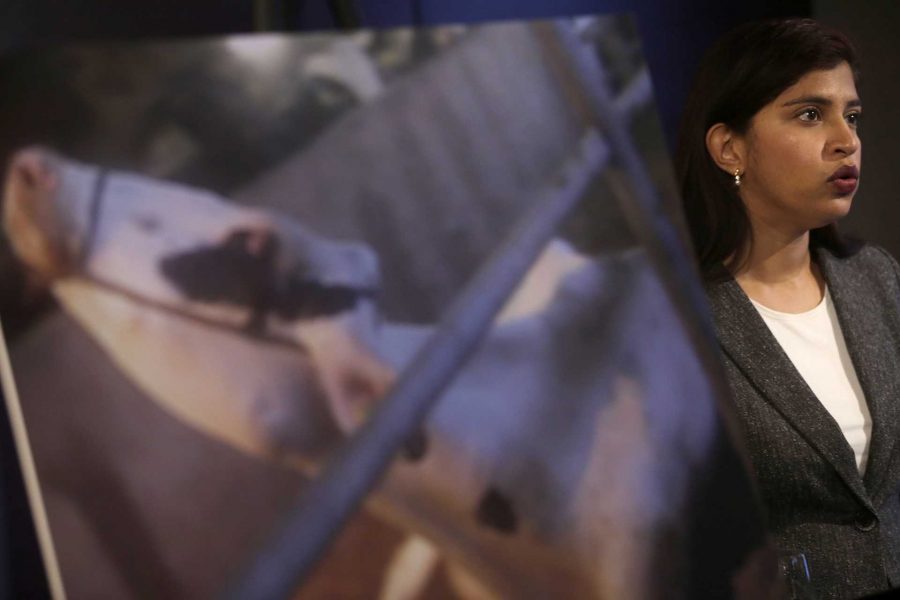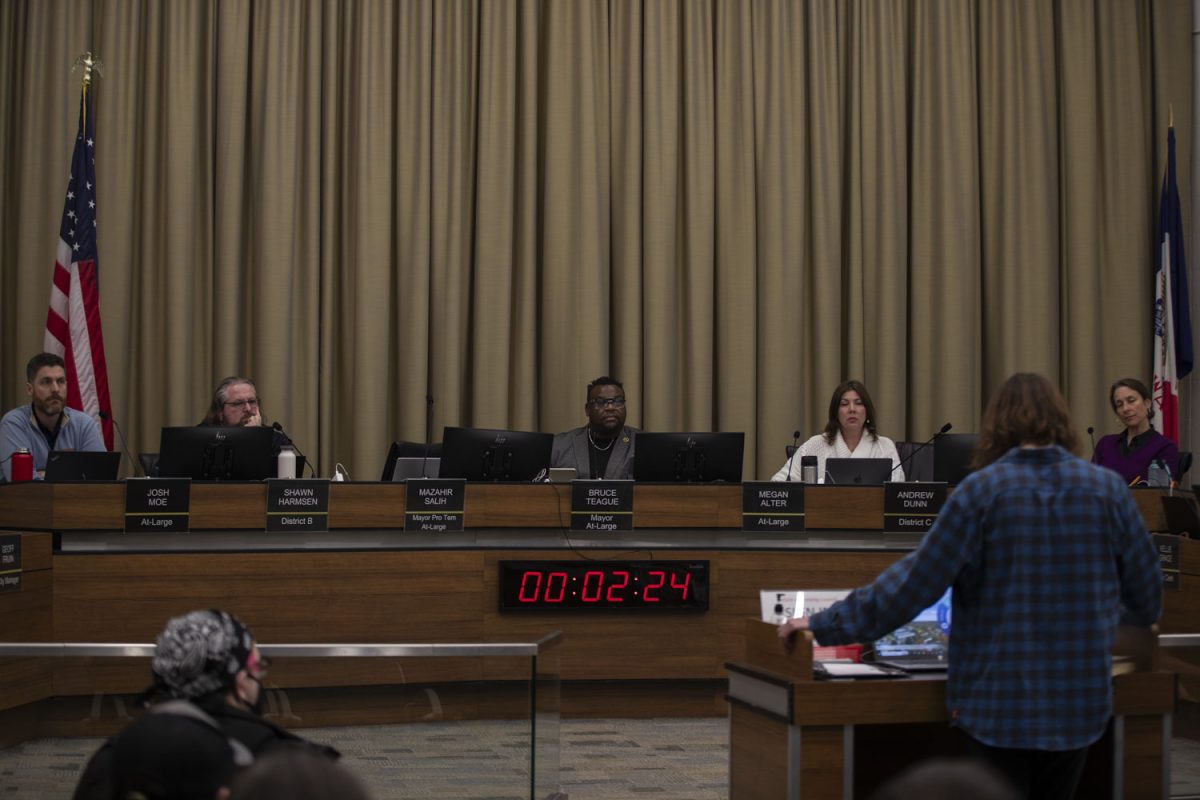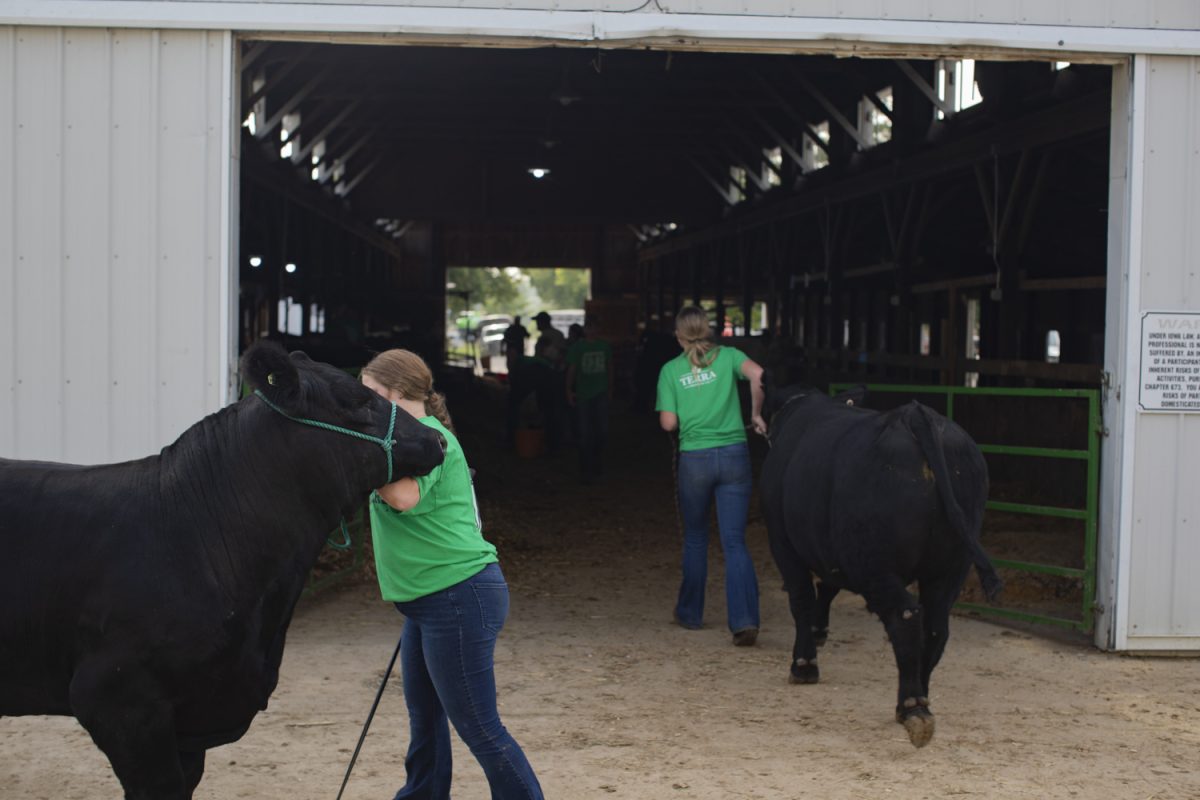By Paige Schlichte
[email protected]
Johnson County wants to put an end to one method of large-production farming by restricting concentrated animal feeding operations in the county despite it being out of its jurisdiction.
The Agriculture Department’s website defines the operations as “an animal feeding operation containing more than 1,000 animal units on site for more than 45 days a year;” The operations are regulated by the EPA under the Clean Water Act, and they must possess a comprehensive nutrient management plan to responsibly get rid of manure and other organic waste.
On Aug. 31, community members spoke at the Johnson County Comprehensive Plan Committee public meeting, which aims to create a future land-use map that acts as a guiding policy for zoning the land in the county. The large animal farms were included in the discussion.
County Supervisor Mike Carberry said there are 9,000 such farms in the state. Though cattle, dairy, and poultry operations are present, large hog farms are the most common in Iowa.
“We would like a moratorium on [the farms] in Johnson County,” Carberry said. “We’ve sent letters to the Natural Resources Department to try to encourage that it close some of the loopholes in the state regulations for [concentrated feeding operations]. We don’t think it’s sustainable agriculture.”
Such facility designs must also meet requirements before being issued a permit by the National Pollutant Discharge Elimination System Section of Iowa’s DNR.
However, many are still concerned about the environmental effects of the operations on Iowa’s air, water, and soil.
Kim Andersen, who owns an organic family farm along with her siblings near Brighton, Iowa, lives about a mile away from a concentrated operation.
“Until one moves in next to you, people don’t get it,” she said. “They think you’re against farming, and I’m not; I’m a farmer myself. But when is it agriculture and when is it industrial? It doesn’t resemble a farm — you don’t see people, animals, or tractors. It looks like a factory out in the middle of the country.”
Lynn Gallagher, a member of 100 Grannies said she supported the land-use plan’s language to “discourage the expansion of [industrial farms].”
Rob Brenneman, the founder of Brenneman Pork, one of the largest pork producers in Iowa, defends his hog operations. He said the company owns pigs in Johnson County, though it does not own the facilities in which the pigs are raised.
“It’s about agriculture and young people and helping to keep them on the farm and in the community,” Brenneman said. “We provide jobs and opportunities for young people who want to stay in agriculture. That’s my motto, and that’s what we try to do every day.”
Iowa possesses a Master Matrix, a scoring system used to evaluate where the large operations are permitted to be located. Ultimately, the DNR approves the location.
Because of this, the committee in charge of the land-use map is trying to discourage the industrial farms in Johnson County.
“In a factory-farm system, they know they’re going to lose a percentage of their animals, they count on that,” Gallagher said. “It’s all about profit. We treat them like machines; they’re just production units.”










